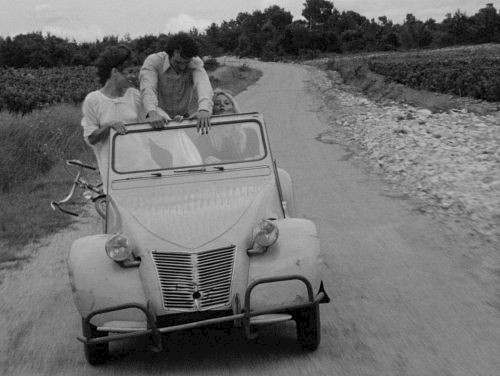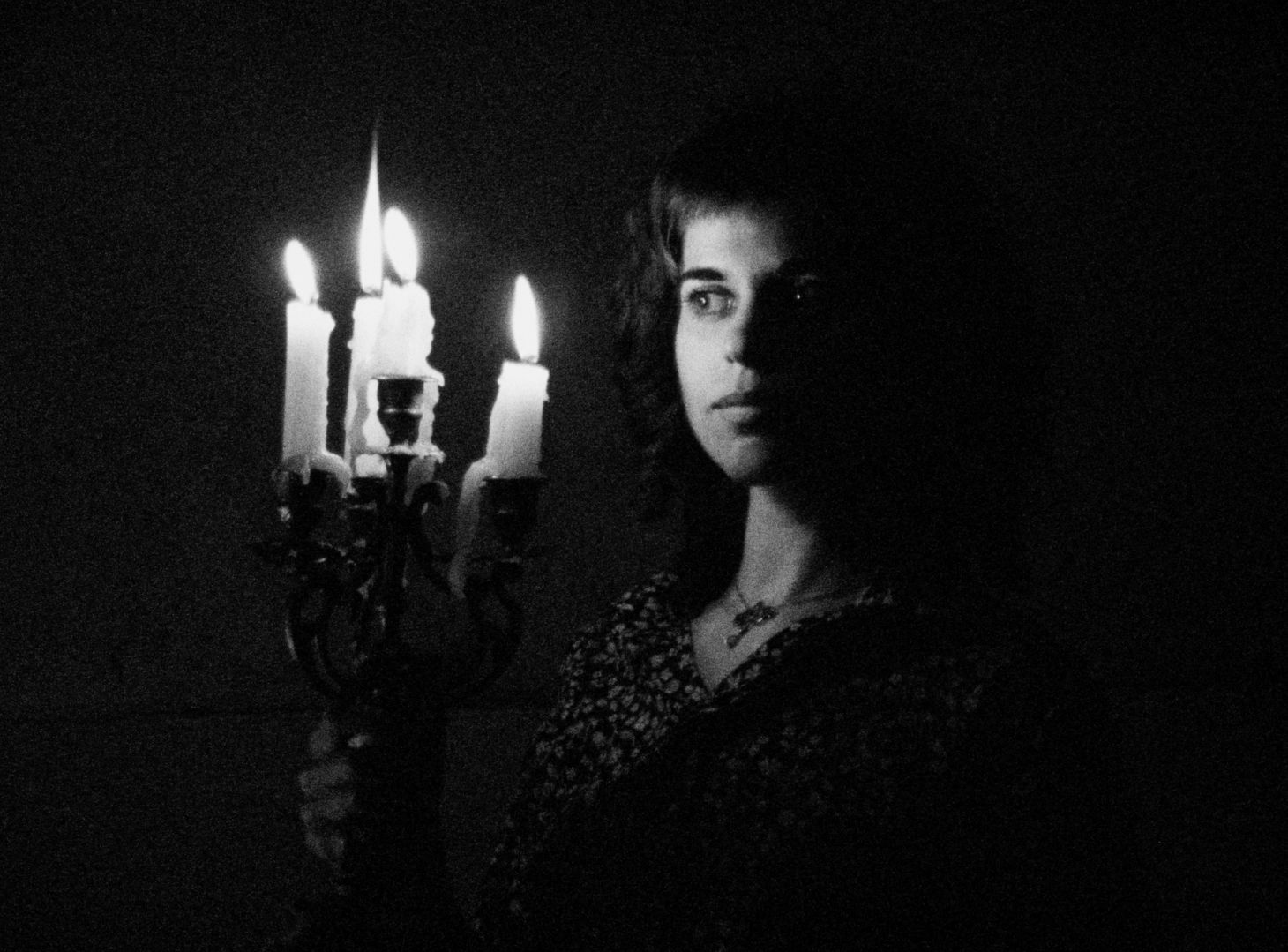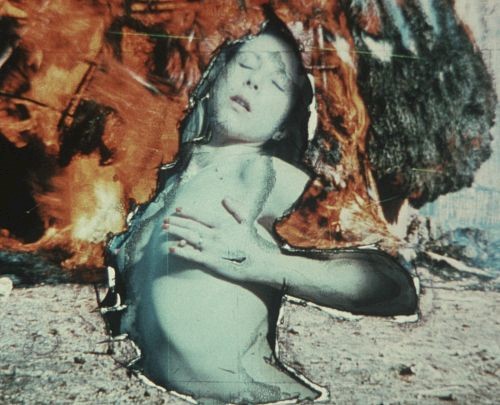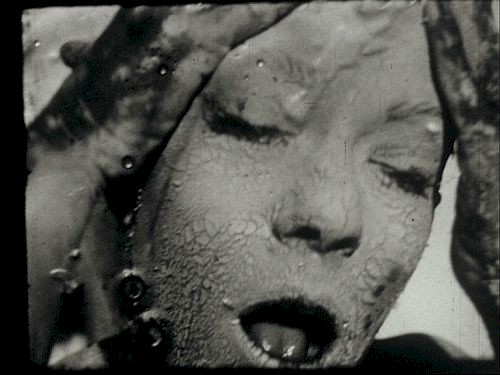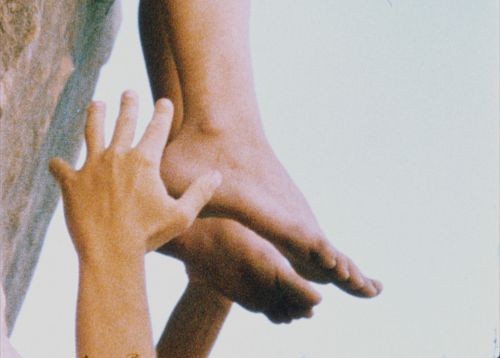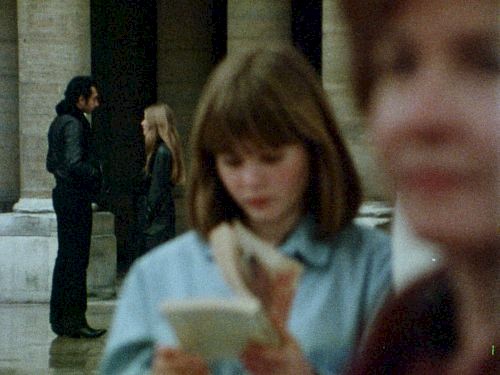Directed in 1969 by the maverick filmmaker Jean Fléchet, who met with public and critical success with L’Orsalhèr (Le Montreur d’ours (The bear tamer), 1984) spoken in Occitan, Traité du rossignol (Treaty of the nightingale) appeared in the first editions of the Collectif Jeune Cinéma catalog, then quickly disappeared. Let’s unfold the images of this unusual and curious film.
The story begins with a homonymy (the word rossignol (nightingale) designates both the bird with its melodious trill and a set of keys for picking locks). Equipped with a tape recorder, Vigo, a nonchalant young man, travels to the Vaucluse region of France to record the song of the nightingale following the request of an electronic music composer. During a spring night, in an abandoned house, he meets two thieves, Melanie and Lela, who are looking for who knows what. This impromptu meeting is punctuated by funny appearances: an extremely tired cyclist-hiker; a peremptory quilt salesman accompanied by his sleeping wife, both arriving by helicopter; a gathering of villagers who smear themselves with honey; Melanie’s father, a friend of the commissioners and prosecutors, in the grip of verbal delirium; a mysterious female figure who personifies the owl. In the candlelit half-light, the fable is placed under the magical invocation of old Voronov, the former Russian owner of the house, possessor of a fabulous fruit garden.
The picaresque character of the fable is redoubled by the digressive structure of the film, punctuated by didactic sequences on birds (nightingales, eider ducks, pelicans), alternating documentary images and animated sequences, remarks on the contemporary political situation, and the story of Michel Siffre’s 1962 experiment in which he spent sixty-three days in a cave to measure the influence of the internal clock. Hence the disparate nature of the film, through associations of ideas and ramblings, in the course of an initiatory May night during which time is abolished. The bouncy and disconcerting tone, the actresses’ often slangy language (“we half-inched the sleeper”, “everyone had become short-sighted”, “he knows a lot of stuff, but he’s a loafer”), the tenuousness of the plots, which are simply a support for unexpected encounters, announce Jacques Rivette’s films. By its mixture of fantasy and gravity, Traité du rossignol offers a meditation tinged with melancholy about society and the place of the individual, be it archaic village rites or the world of birds. At dawn, driving along the roads in their dilapidated 2CV, unloading the tape recorder, the bicycle, the quilts and Voronov’s elixir, the two thieves, joined by Vigo, seem to be escaping from the curse, breaking away. The night of May will be liberating or not.
If the film is singular in its composite form, it is nevertheless part of a certain utopian landscape of French cinema in the 1970s. This is evidenced by the choice of actors and actresses: Richard Leduc (Vigo) is an actor familiar with the films of Robert Benayoun and Alain Robbe-Grillet; Hermine Karagheuz (Lela), recently deceased, played Marie the following year in Out 1 : Noli me tangere by Rivette; Françoise Brion (Mélanie), known for her roles in the films of Jacques Doniol-Valcroze, belongs to the circle of the chosen ones in Les Soleils de l’île de Pâques, another initiatory film by Pierre Kast released in 1972; director of Beckett, Roger Blin embodies the seller of quilts with raptor’s claws; Marpessa Dawn, who portrays the owl, remained famous for her role in Orfeu Negro.
In a libertarian tone close to the utopias of 1968, between the New Wave and the avant-garde, Traité du rossignol crosses narrative experimentation, poetic allegory and political reflection, responding to the shifting criteria of the first years of the CJC in search of a cinema “that does not fit or does not wish to fit into what we are accustomed to call the system”.
- Erik Bullot
